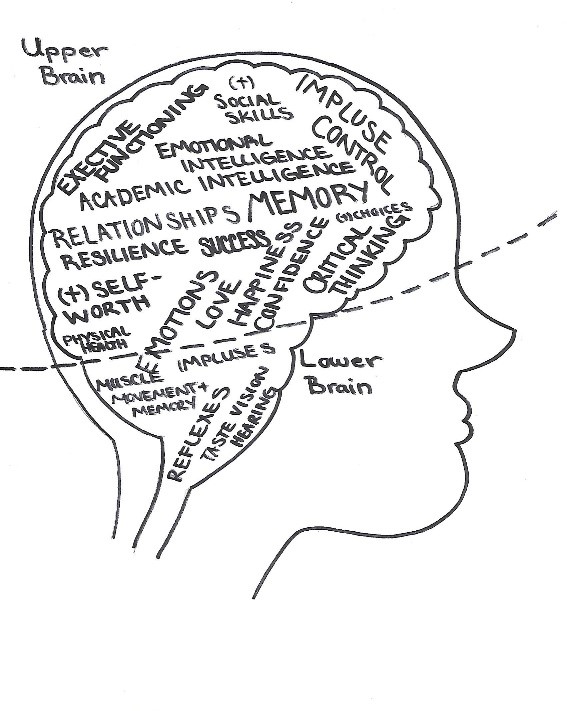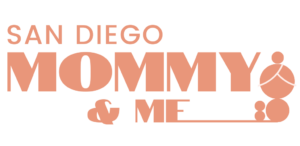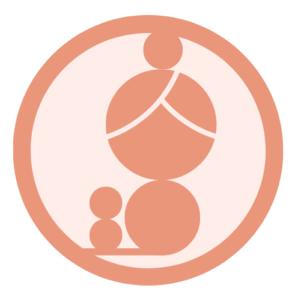
Ok let’s pocket what we know about the lower brain for a second, and let’s jump right into the upper brain.
For our parenting purposes, let’s get comfortable with how the upper brain works, what it’s responsible for, and most importantly, how we use this info to put our mama-brains at ease.

The Upper Brain
Function:
The upper brain is what makes us human. It is our sophisticated control center. What makes you who you are and your baby who s/he is. It is within the upper brain that thinking, imagining, and planning will take place… eventually.
Development:
The upper brain is extremely immature at birth. Although the upper brain is learning and absorbing information like a sponge, the overall maturation process of the upper brain is slow. Under “normal + healthy” circumstances, it does not fully develop until the mid to late 20s. Even though the upper brain will go on to need guidance, stimulation, and nurturing for decades to come, the “critical window” is considered to be the first three years and starts day 1.
You can read more about why the first three years are considered the most important HERE.
Learning:
The upper brain is dependent on stimuli and experiences. Repeated exposure (environment, interactions, stimuli, etc.) will create connections in the upper brain, resulting in the process known as learning. The connections that are repeated the most create the strongest pathways in our brains. The stronger the pathways, the more prominent (used or automatic) the learned behavior, thought, or emotion becomes.
For example, take learning to ride a bike. You are not born knowing how to ride a bike, but the more you practice all the elements that go into riding a bike, the quicker your brain gets at performing that task. Eventually, the brain pathways created become so strong this very complex behavior becomes seemingly automatic.
Maturation:
The upper brain develops in stages, and as a result, it will have a variety of changing needs and abilities. As it matures, one essential task of the upper brain is to monitor and regulate the lower brain (self-regulation). With practice and time, the upper brain will get better and better at independently calming the strong reactions, impulses, and emotions that originate in the lower brain.
How does this brain talk apply to parenting?
Realistic Expectation #3:
You can not rush the learning process. The repetitive tasks you do and the repetitive lessons you teach will build off each other. However, repetition, time, brain maturation, and a lot of patience is required.
What does that mean? When you feel your little isn’t doing something they should be doing, challenge that thought through this expectation. Instead of immediately worrying that something might be wrong with baby, or that you are doing something wrong, first consider the time, developmental ability, and patience needed before your little can acquire a new skill. Often we expect too much too soon.
Realistic Expectation #4:
Many of the behaviors parents worry about are in fact appropriate and can be explained by their developmental stage. Therefore, causing unnecessary stress for parents and children.
What does that mean? Continue to check in with trusted professionals and developmental resources for realistic developmental expectations. Better yet, check in with your fellow moms. Often others moms are a great resource for reassurance and normalizing. For example, it’s super developmentally appropriate for toddlers 12-18 months old to drive their parents crazy. Seriously, no joke!
All in all, there are tools you can try when parenting the upper brain (view HERE), and tips to consider when parenting the lower brain (view HERE).
Ultimately, all your love and care (+ maturation) will lead to communication pathways you want between the upper and lower brain (i.e. integrating the brain).
Learn more about the relationship between the upper and lower brain HERE.

